Background
He was born at Munich on the 16th of January 1802, of Jewish parentage.


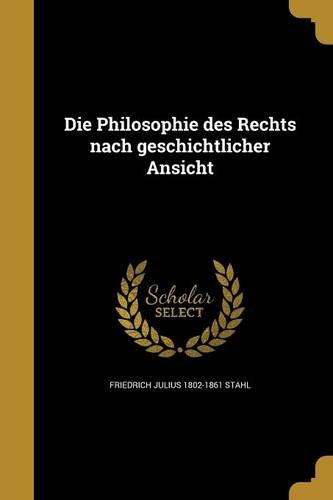
( This work has been selected by scholars as being cultur...)
This work has been selected by scholars as being culturally important, and is part of the knowledge base of civilization as we know it. This work was reproduced from the original artifact, and remains as true to the original work as possible. Therefore, you will see the original copyright references, library stamps (as most of these works have been housed in our most important libraries around the world), and other notations in the work. This work is in the public domain in the United States of America, and possibly other nations. Within the United States, you may freely copy and distribute this work, as no entity (individual or corporate) has a copyright on the body of the work. As a reproduction of a historical artifact, this work may contain missing or blurred pages, poor pictures, errant marks, etc. Scholars believe, and we concur, that this work is important enough to be preserved, reproduced, and made generally available to the public. We appreciate your support of the preservation process, and thank you for being an important part of keeping this knowledge alive and relevant.
http://www.amazon.com/gp/product/1361871415/?tag=2022091-20
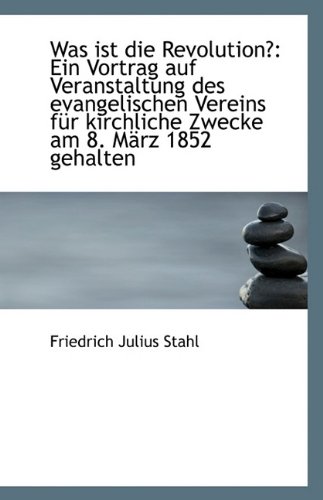
(This is a pre-1923 historical reproduction that was curat...)
This is a pre-1923 historical reproduction that was curated for quality. Quality assurance was conducted on each of these books in an attempt to remove books with imperfections introduced by the digitization process. Though we have made best efforts - the books may have occasional errors that do not impede the reading experience. We believe this work is culturally important and have elected to bring the book back into print as part of our continuing commitment to the preservation of printed works worldwide.
http://www.amazon.com/gp/product/1115177753/?tag=2022091-20
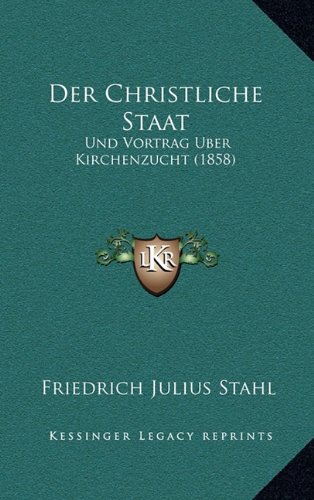
(This scarce antiquarian book is a facsimile reprint of th...)
This scarce antiquarian book is a facsimile reprint of the original. Due to its age, it may contain imperfections such as marks, notations, marginalia and flawed pages. Because we believe this work is culturally important, we have made it available as part of our commitment for protecting, preserving, and promoting the world's literature in affordable, high quality, modern editions that are true to the original work.
http://www.amazon.com/gp/product/1168048621/?tag=2022091-20
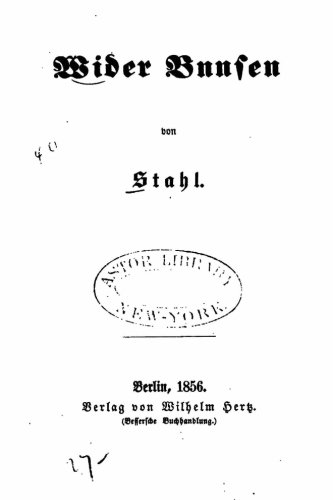
(Wider Bunsen by Friedrich Julius Stahl. This book is a re...)
Wider Bunsen by Friedrich Julius Stahl. This book is a reproduction of the original book published in 1856 and may have some imperfections such as marks or hand-written notes.
http://www.amazon.com/gp/product/1534937730/?tag=2022091-20

( This work has been selected by scholars as being cultur...)
This work has been selected by scholars as being culturally important, and is part of the knowledge base of civilization as we know it. This work was reproduced from the original artifact, and remains as true to the original work as possible. Therefore, you will see the original copyright references, library stamps (as most of these works have been housed in our most important libraries around the world), and other notations in the work. This work is in the public domain in the United States of America, and possibly other nations. Within the United States, you may freely copy and distribute this work, as no entity (individual or corporate) has a copyright on the body of the work. As a reproduction of a historical artifact, this work may contain missing or blurred pages, poor pictures, errant marks, etc. Scholars believe, and we concur, that this work is important enough to be preserved, reproduced, and made generally available to the public. We appreciate your support of the preservation process, and thank you for being an important part of keeping this knowledge alive and relevant.
http://www.amazon.com/gp/product/1361863552/?tag=2022091-20
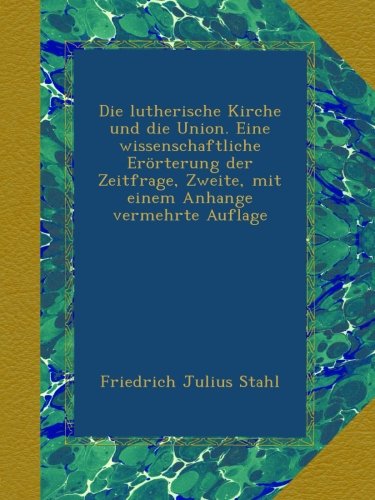
(This book was originally published prior to 1923, and rep...)
This book was originally published prior to 1923, and represents a reproduction of an important historical work, maintaining the same format as the original work. While some publishers have opted to apply OCR (optical character recognition) technology to the process, we believe this leads to sub-optimal results (frequent typographical errors, strange characters and confusing formatting) and does not adequately preserve the historical character of the original artifact. We believe this work is culturally important in its original archival form. While we strive to adequately clean and digitally enhance the original work, there are occasionally instances where imperfections such as blurred or missing pages, poor pictures or errant marks may have been introduced due to either the quality of the original work or the scanning process itself. Despite these occasional imperfections, we have brought it back into print as part of our ongoing global book preservation commitment, providing customers with access to the best possible historical reprints. We appreciate your understanding of these occasional imperfections, and sincerely hope you enjoy seeing the book in a format as close as possible to that intended by the original publisher.
http://www.amazon.com/gp/product/B009MVSZ46/?tag=2022091-20
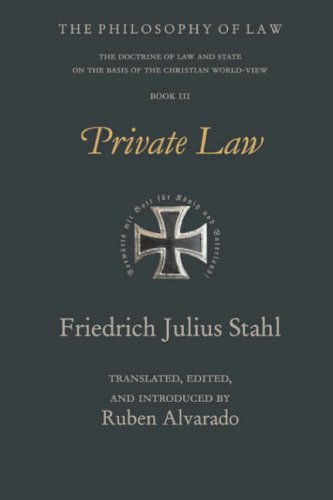
("Private Law" is a translation of Book III of "The Doctri...)
"Private Law" is a translation of Book III of "The Doctrine of Law and State," providing the detailed outworking in private law of the principles of law developed in Book II, "Principles of Law." In it, the rights of man receive full explanation within the context of higher, God-given legal principles. Thus, for Stahl human rights do not serve as the source of law but as a secondary principle subservient to a higher law. The further outworking of this concept in rights of property, contract, the law of the family, is masterfully laid out. Institutions such as property and marriage are not made the creature of will and contract but are fully explained as given realities which the human will cannot alter. This book constitutes a return to sound principles of private law and an antidote to contemporary emotivism and primacy of the will.
http://www.amazon.com/gp/product/9076660050/?tag=2022091-20
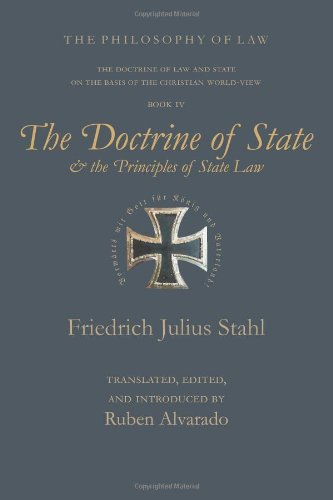
(Friedrich Julius Stahl was one of Germany's leading const...)
Friedrich Julius Stahl was one of Germany's leading constitutional scholars in the 19th century, prior to the advent of Bismarck and the establishment of a united Germany. The Doctrine of State and the Principles of State Law is the centerpiece of his magnum opus, the Philosophy of Law. This is the first English-language translation of this key work of legal and political philosophy. It is written from a Christian and conservative background, but cognizant of and generous toward the liberal mainstream of constitutional opinion that characterized his day. Historians, legal scholars, and philosophical fellow-travelers all will gain greatly by perusing this magnificent yet forgotten work.
http://www.amazon.com/gp/product/9076660107/?tag=2022091-20
He was born at Munich on the 16th of January 1802, of Jewish parentage.
Having studied law at Wurzburg, Heidelberg and Erlangen, Stahl, on taking the degree of doctor juris, established himself as privatdozent in Munich, was appointed (1832) ordinary professor of law at Wurzburg, and in 1840 received the chair of ecclesiastical law and polity at Berlin.
In Berlin he immediately made his mark as an ecclesiastical lawyer, and was appointed a member of the first chamber of the general synod. Elected in 1850 a member of the short-lived Erfurt parliament, he bitterly opposed the idea of German federation. Stahl early fell under the influence of Schelling, and at the latter's insistence, began in 1827 his great work Die Philosophie des Rechts nach geschichtlicher Ansicht (an historical view of the philosophy of law), in which he bases all law and political science upon Christian revelation, denies rationalistic doctrines, and, as a deduction from this principle, maintains that a state church must be strictly confessional.
This position he further elucidated in his Der christliche Staat und sein Verhältniss zum Deismus und Judenthum (The Christian State and its relation to Deism and Judaism; 1847). As Oberkirchenrath (synodal councillor), Stahl used all his influence to weaken the Prussian Union of churches (i. e. that compromise between the Calvinist and Lutheran doctrines which is the essence of the Evangelical Church in Prussia) and to strengthen the influence of the Lutheran Church (cf. Die Lutherische Kirche und die Union, 1859). Stahl advocated the formation of an episcopal constitution of the Lutherans, similar to Roman Catholics or Anglicans.
The Prussian minister von Bunsen attacked him, while King Frederick William IV supported Stahl in his ecclesiastical policy, and the Prussian Union would probably have been dissolved had not the regency of Prince William (afterwards William I, German Emperor) supervened in 1858. Stahl's influence fell under the new régime, and, while remaining a member of the Prussian House of Lords ("Herrenhaus"), he resigned his seat on the general synod. While taking a cure he unexpectedly died at Bad Brückenau.
His works are:
Die Philosophie des Rechts nach geschichtlicher Ansicht (3 volumes). Heidelberg, 1830, 1833, 1837;
Die Kirchenverfassung nach Lehre und Recht der Protestanten. Erlangen, 1840;
Ueber die Kirchenzucht. 1845 (2nd ed. 1858);
Das monarchische Prinzip. Heidelberg, 1845;
Der christliche Staat. Berlin, 1847 (2nd ed. 1858);
Die Revolution und die konstitutionelle Monarchie. Berlin, 1848 (2nd ed. 1849);
Was ist Revolution? Berlin, 1849, 1852;
Der Protestantismus als politisches Prinzip. Berlin, 1853 (3rd ed. 1854);
Die katholischen Widerlegungen. Berlin, 1854;
Wider Bunsen. Berlin, 1856;
Die lutherische Kirche und die Union. Berlin, 1859 (2nd ed. 1860);
Siebenzehn parlamentarische Reden und drei Vorträge (posthumous). Berlin, 1862;
Die gegenwärtigen Parteien in Staat und Kirche: neunundzwanzig akademische Vorlesungen (posthumous). Berlin, 1868.
("Private Law" is a translation of Book III of "The Doctri...)
(Friedrich Julius Stahl was one of Germany's leading const...)
(This book was originally published prior to 1923, and rep...)
( This work has been selected by scholars as being cultur...)
( This work has been selected by scholars as being cultur...)
(This is a pre-1923 historical reproduction that was curat...)
(This scarce antiquarian book is a facsimile reprint of th...)
(Wider Bunsen by Friedrich Julius Stahl. This book is a re...)
He was brought up strictly in the Jewish religion and was allowed to attend the gymnasium. As a result of its influence, he was at the age of seventeen converted to Christianity and baptized into the Lutheran Church at Erlangen on November 6, 1819. To this faith he clung with earnest devotion and persistence until his death.
